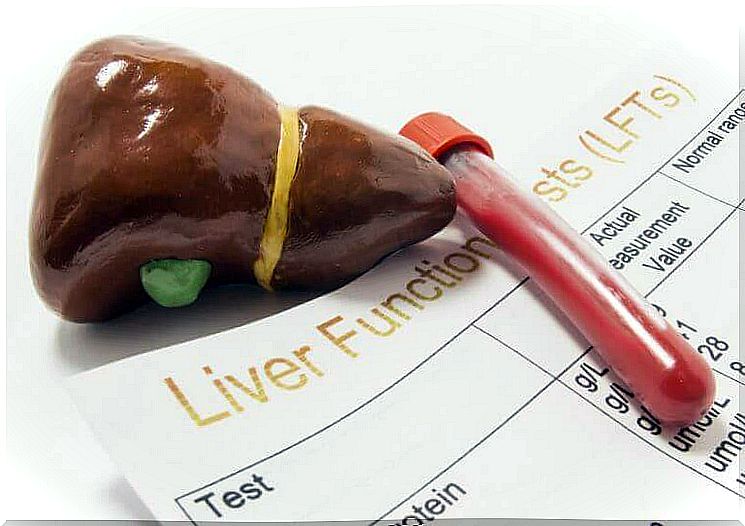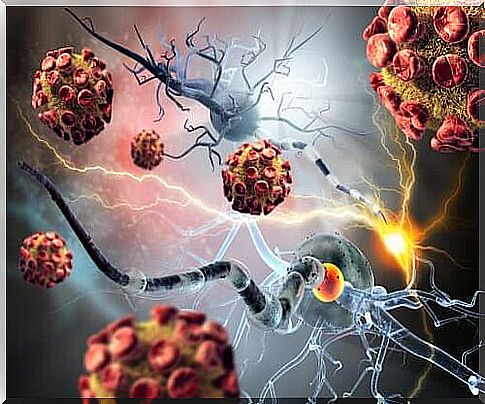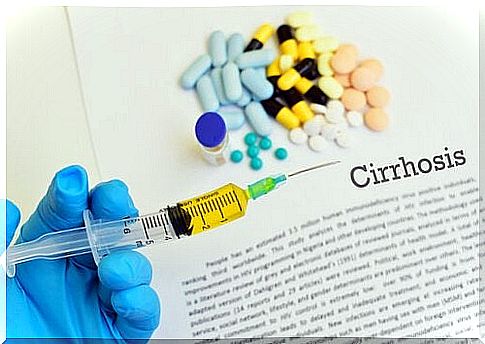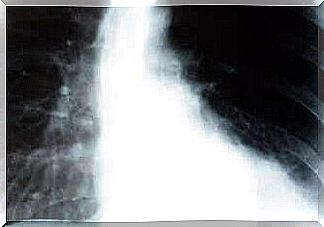5 Causes Of Elevated Value Of Alkaline Phosphatase

Alkaline phosphatase is an enzyme found in most of the body’s tissues. However, it is more prominent in the liver. It is also found in the bile ducts and bone tissue.
It is distributed in various forms, known as isoenzymes originally from the liver and bones.
All of these can be quantified separately with a blood sample, if necessary.
- Normal levels are from a range of 30 to 140 UI / L
- And when these levels cross the larger normal limit, the occurrence of various diseases can occur. Many of them are the cause of elevated levels.
5 reasons for the increase in alkaline phosphatase
1. Liver disease

Alkaline phosphatase levels can change and increase as a result of various liver diseases.
This is the case, for example, for viral hepatitis. Not only do transaminases increase, but so does this enzyme. This is due to inflammation of the organ and overproduction of bilirubin.
In addition, it usually occurs in other acute diseases. For example, the obstruction of the bile ducts when you have gallbladder inflammation, and in chronic diseases, such as liver cirrhosis. Or it can occur as a consequence of liver cancer.
Bone disease
- One of the bone diseases known to elevate alkaline phosphatase is paget’s disease.
In this pathology, the legs are progressively deformed and enlarged. However, by controlling the disease, the levels return to normal.
- This enzyme can also increase as a result of certain types of cancer that metastasize or invade the bone
As in the previous case, if they are processed efficiently and in a timely manner, the values can return to their normal range.
Tumors

One of the tumors, or the neoplastic processes that affect the increase in alkaline phosphatase, is Hodgkin’s lymphoma.
In addition, this tumor characteristic of lymph nodes determines the increase in levels of this enzyme through blood tests.
As part of the lymph node condition, there is a change in liver function. Basically, the levels of alkaline phosphatase change.
However, this is a laboratory result that can be noticed in advanced stages of the disease, so it shows the severity of the situation when one is in more severe stages of this condition.
Other tumors that can cause alkaline phosphatase are cancers such as:
- Lung
- Ovary
- Prostate
- Larynx
- Testicle
And leukemia, which comes from lines similar to lymphoma.
4. Pregnancy
After the beginning of the third trimester, the placenta is a producer element of the alkaline phosphatase enzyme.
This affects the overall maternal values, and increases them beyond their normal range. In general, the interval is between 140 and 250 UI / L.
However, as with the physiological condition, this enzyme elevation is nothing to worry about. This is because it is a necessary substance for protein synthesis, as well as calcification of bones and cartilage in the fetus.
If the enzyme levels remain in this elevated area after birth, something else may be causing it.
5. Specific medications

Many everyday medications have a property that increases visible levels of alkaline phosphatase through a blood test.
Among the medications that usually have this effect are:
- Antacids like ranitidine
- Antiepileptics and anticonvulsants such as phenytoin and carbamazepine
- Macrolide antibiotics such as erythromycin
- Antihypertensive calcium channel blockers, such as verapamil
Therefore, when visiting the doctor, all patients should inform them about the medications they usually take.
That way, they can predict the increase in alkaline phosphatase, and they will not think directly about possible diseases that can increase the levels.
Finally, this is possible with a complete clinical history, and a good doctor-patient relationship.









